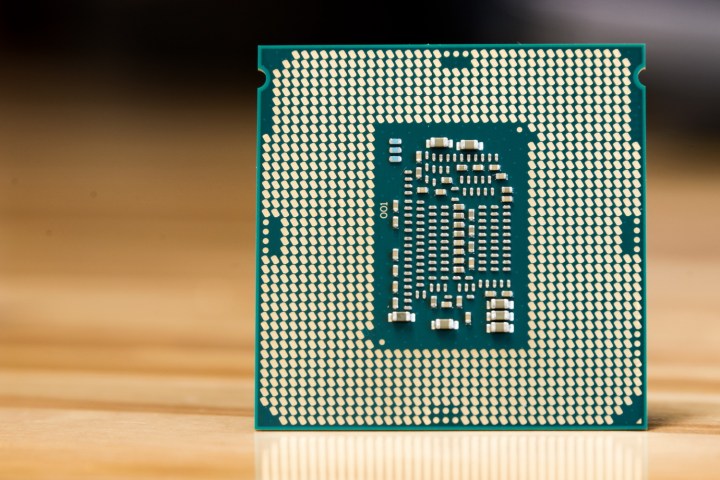
Intel’s next-generation processors, including the monstrous Core i9-9900K, could launch as soon as October 1, if the latest batch of rumors is to be believed. This would sit in line with previous rumors from sites like XFastest, which provided slides of what appeared to be Intel’s processor roadmap for the remainder of 2018 and into 2019. The road map shows the Core i7-9900K, the Core i7-9700K, the Core i5-9600K arriving in the third quarter.
These chips will be a refresh of Intel’s eighth-generation design for desktop chips, aka Coffee Lake-S, rather than its upcoming “true” ninth-generation “Ice Lake” design. This isn’t unusual for Intel as seen with the launch of its eighth-generation CPU family in August 2017 although those initial chips, based on a refreshed seventh-generation design, targeted thin-and-light laptops instead of desktops.
As previously reported, the Core i9-9900K will supposedly introduce an eight-core Intel chip to the mainstream market with a base speed of 3.6GHz, a maximum boost speed using two cores at 5GHz (on two cores) and 16 threads. Meanwhile, the Core i7-9700K will supposedly be an eight-core chip as well but without Hyper-threading technology. It will have a base speed of 3.6GHz and a maximum boost speed of 4.9GHz using just one core.
Meanwhile, on the Core i5 front, the upcoming Core i5-9600K will supposedly be a six-core chip with no Hyper-threading, a base speed of 3.7GHz, and a maximum turbo speed of 4.8GHz using two cores.
Those three chips are slated to debut on October 1, according to WCCFTech. They will be followed by the more mainstream, non-K versions of the ninth-series CPUs a little later. Release dates for those chips have yet to be revealed. Based on the previously released roadmap though, they may be the unnamed chips that are slated for Q1 and Q2 2019 releases.
For the uninitiated, the “K” suffix means the processors will be unlocked, allowing you to overclock the chip’s speeds. The Core i9-9900K, the i7-9700K, and the i5-9600K will supposedly have a power draw of 95 watts while the “locked” Core i5-9400 will only have a power draw of 65 watts.
As Intel stressed during its recent 2018 second-quarter earnings call, the company is quite pleased with its 14nm product roadmap as it leads into 2019. The company’s seventh-generation “Kaby Lake” products introduced in 2016 are based on the 14nm+ process technology while the current eighth-generation chips are based on a refined 14nm++ process technology. Chips slated for 2019 are expected to use the 14nm+++ node (aka the third 14nm revision) while Intel’s 10nm process won’t mass produce chips until the end of 2019.
Intel is in dire need of an eight-core processor for the mainstream market given AMD introduced eight-core chips in 2017 with the launch of its first Ryzen processors. The only eight-core chip residing outside Intel’s server-focused processor family is the Core i7-7820X chip for enthusiasts released in 2017 packing eight cores, 16 threads, a base speed of 3.6GHz and a maximum boost of 4.3GHz. It currently sells for $400.
Updated on August 13: We’ve added the latest rumors.


